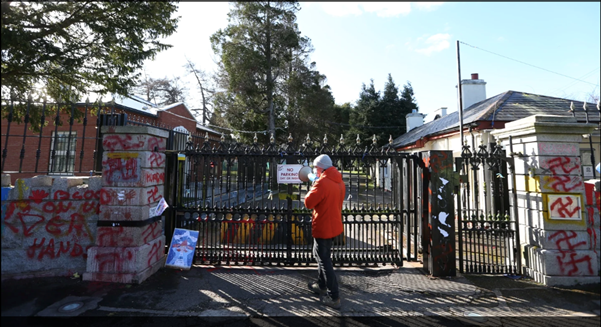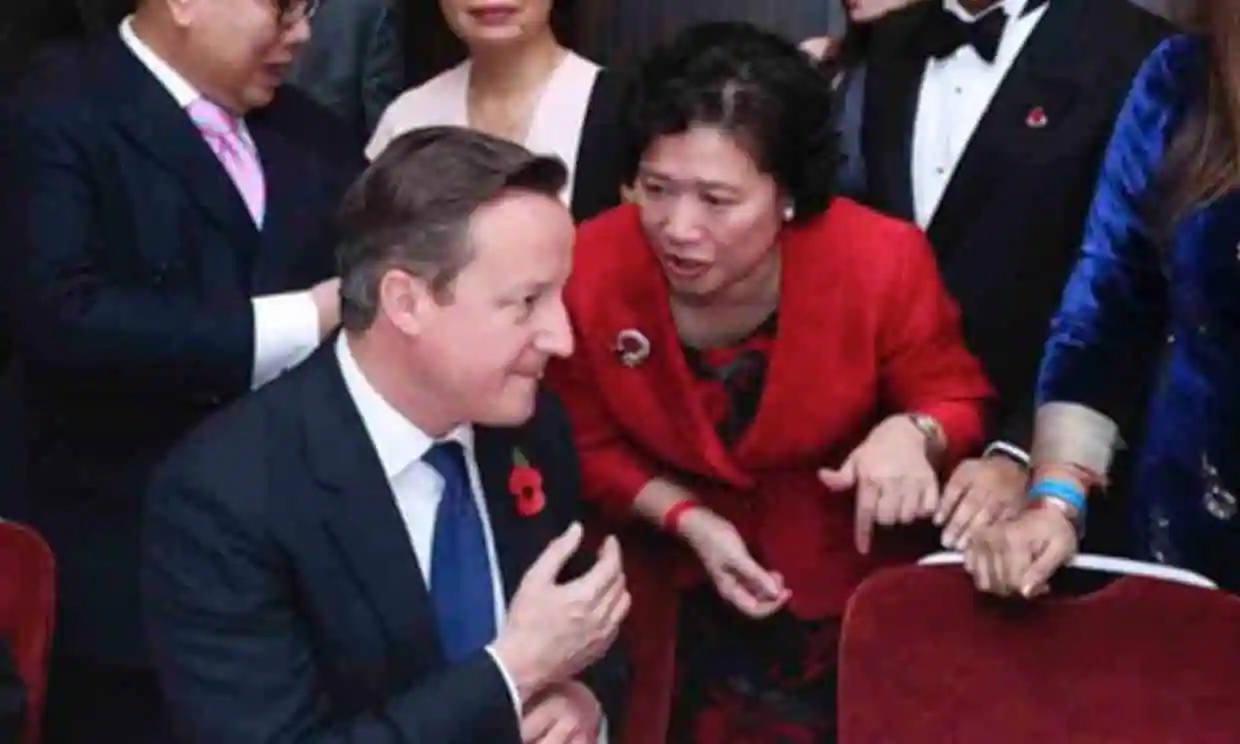Pan Asian expert on Truss v. Sunak PM battle: Sunak not flexible enough and could harm Britain abroad
Dr Cenk Tamer, a research fellow who specialises in Asia-Pacific affairs, analyses the possible outcome for global security from either Liz Truss or Rishi Sunak as Britain’s new prime minister.
While nowhere near the scale of “when America sneezes, the rest of the world catches a cold,” the impact of either Liz Truss or Rishi Sunak being installed as the new prime minister next week will be profound.
In Liz Truss we have a politician who, by common consent, will be the most conservative prime minister in decades, stretching back to Margaret Thatcher, the Iron Lady herself. China may have most to fear from Truss’s steel, assuming noises from within her camp are correct about how she wants to elevate it on the same scale as Russia as an official threat.
Sunak has tried to appeal to conservative grassroot voters by reinventing himself as a China hawk, saying it is the “biggest long-term threat to Britain.” His potential difficulty in winning them over, away from his rival, lies in the unlikely prospect of their forgetting how earlier this year, when he was still chancellor of the exchequer, his officials drafted a deal to deepen trade links with China, only to be shelved.
Then there’s Russia to consider.
According to a report by the British Foreign Policy Group, an independent non-partisan research group, 45% of the British public now believe that Russia and China pose the same level of threat to the UK.
So which of the two potential prime ministers is best equipped to deal with the twin threats of these superpowers?
Well, it is thought that because Truss has had experience as the secretary of state for foreign affairs (since September 2021) she has a better reading of the global interests of the UK. The hand of Sunak, in contrast, is weakened by his lack of experience outside the Treasury, with his only other cabinet role as an under-secretary of state for local government.
Considering Russia’s attack on Ukraine and China’s increasing threat to Taiwan, it is expected that global defence and security policies will be the main determining components in Britain’s foreign policy.
Should Sunak, who has slipped behind in the race after being the early frontrunner, overcome his lack of experience in foreign affairs and pick up the keys to No 10, he will have to learn fast.
That is because defence and security policies are likely to be key battlegrounds when it comes to trying to fend off a resurgent Labour party in the next general election.
In this context, the promises of prime ministerial candidates in the field of economy and foreign affairs alone are not sufficient; defence-security policies will also be effective in their success in the election.
The policy paper Global Britain in the Age of Competition has Boris Johnson talking about how the UK needed to “adapt to the changing world around us.” Of course he still expected to be at the helm when it came to what the report highlighted as the importance of developing an integrated perspective in security, defence, development and foreign policy of the UK.
Arguably the cost-of-living rise sparked off by Russia’s invasion of Ukraine, allied to the earlier damage done by Brexit, did for Boris as much as allegedly turning a blind eye to parties and an out of control deputy chief whip. Two compelling examples of how the UK’s relationship with the rest of the world can help bring down the most powerful of domestic politicians.
At a time when such threats from Russia and China are increasing, the UK’s defence secretary, Ben Wallace, naturally favours giving more importance to the country’s defence-security policies.
The UK does not want to be caught cold, and that means preparing for crises that suddenly break out in the world. Failing to do so could mean it is simply too late to protect the UK’s interests.
If necessary precautions are not taken against these crises that suddenly appear in the world, it may not be possible to protect the global interests of the UK after a point.
For example, Truss suggests that lessons should be drawn from Ukraine, namely that China can exhibit similar aggression in Taiwan, and therefore military support should be given to the island country from now on.
On the other hand, Sunak is still not seen as being sure of his ground, despite belatedly declaring China as a threat (in order not to lag even further behind Truss) last month.
Truss, for her part, has not been slow when it comes to criticising Sunak for his relative lack of global experience that if he becomes prime minister, Britain will not be able to protect its global defence-security-economic-political interests.
In addition to this, there is a sense among many observers, domestic and international, that Sunak’s views on Russia and China are not as clear, or as readable, as those of Truss. Therefore, if he comes to power, it is difficult to foresee what measures he will take against these threats.
Based on her promises in the election race, Truss announced that she would increase the defence budget to 3% of the national domestic product in the next five years; Sunak advocated that it should be increased to 2.5% over the same period.
During the Johnson reign, defence expenditures were increased above the 2% target set by NATO and kept stabilised at these levels. After Russia’s attack on Ukraine in February 2022, it came to the fore that the UK should spend more on defence.
On this note, Sunak opposed the “arbitrary” increase in defence expenditures. In contrast he supported NATO’s 2% target. Moreover, he emphasized he did not see the NATO target as a ceiling; but rather as a base.
Truss, on the other hand, favoured more military support to Kyiv during the Russia-Ukraine war.
This embodies a general view that when it comes to the foreign policy and security interests of the UK, Sunak is not flexible enough, and will have difficulty in keeping up with changing situations.
The principled and planned stance he brings as an economist indicates that he cannot be a pragmatist and be flexible in foreign policy. However, the war and peace situations in the world and the threats related to these circumstances are changing all the time and UK has keep up with it. Sunak’s principled policies could harm British foreign policy interests.
Their Impacts on the Global System
The change of prime minister will not only affect London’s relationship with Europe; it will also influence its relations with Washington. This will certainly have an impact in Asia-Pacific too – though we have yet to see what that might be. While the US wants Truss to win; China will support Sunak.
If Sunak wins the election, its effect on global security will be as follows:
- Relations with EU Countries: In the 2016 referendum, Sunak, unlike Truss, supported Brexit from the very beginning. In other words, Truss defended Europe more strongly. But Sunak may not be as enthusiastic about Europe’s security as Truss. In Russia’s war with Ukraine, both Johnson and Truss strongly sided with Kyiv. However, it is thought that Sunak will not be able to show the same solidarity and will remain soft towards Russia.
- Transatlantic Relations: While complying with NATO’s defence spending targets, Sunak may not give sufficient support to the US’s Russia and China strategy. More precisely, Sunak can pursue policies that are more independent from the Washington administration at the global level by advancing in line with the vision of “Global Britain” and the goal of “starting the golden age with China”. In short, if Sunak takes office, the global solidarity of the US and Britain may be damaged.
- Relations with Asia-Pacific: When it comes to relations with China, the best word to describe Sunak might be “realpolitik.” That is to say, he favours compromise rather than conflict. In this respect, Sunak advocates being mature, prudent and balanced in relations with China. In this case, should Sunak become prime minister, observers like myself believe Britain will cooperate less with the US in the Pacific.
If Truss wins the election, its effect on global security will be as follows:
- Relations with EU Countries: Truss, who was against Brexit at first, later started to advocate the opposite. For this reason, it should not be forgotten that Truss supported the Britain Stronger in Europe campaign during the 2016 referendum process.
- Transatlantic Relations: It can be said that NATO’s effectiveness in Europe will increase as a result of the strengthening relations with the US. Britain’s rapid increase in its defence budget during the Truss period will put pressure on European countries in this regard. London’s strengthening of ties with Washington could have both positive and negative effects on European security. A stronger NATO, increasing its influence in Europe, could be a provoking factor for Russia to embark on new adventures.
- Relations with Asia-Pacific: If Truss becomes prime minister, the UK will focus on developing a global security policy, including the defence of Taiwan. Greater British involvement in the Pacific could make China more aggressive, and eventually war in Taiwan could become inevitable.



















































































































































































































